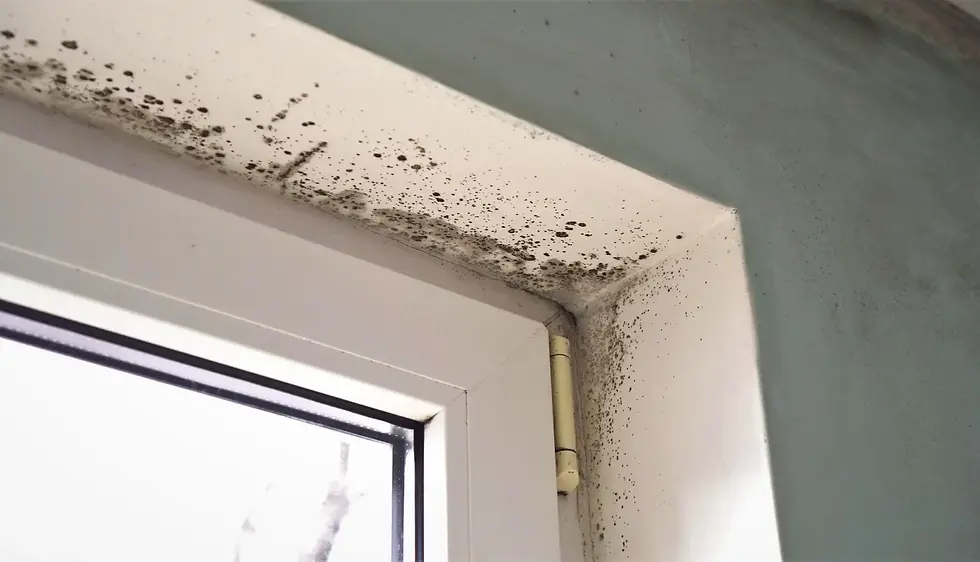Emergency Steps to Take if Your Basement Floods
- A Better Choice Inc.

- Aug 26, 2024
- 3 min read
A basement flood can be a stressful and potentially damaging event for any homeowner. Whether caused by heavy rain, a burst pipe, or an unexpected leak, it’s crucial to act quickly and efficiently to minimize damage and ensure safety. In this blog post, we’ll outline essential emergency steps to take if your basement floods, helping you manage the situation effectively and reduce the risk of long-term issues.
1. Ensure Safety First
Turn Off Electricity:
If it is safe to do so, turn off the electricity in your basement to prevent electrical hazards. Water and electricity are a dangerous combination, and cutting the power helps avoid the risk of electric shock.
Avoid Contact with Contaminated Water:
Floodwater can be contaminated with bacteria, chemicals, or sewage. Avoid direct contact and use protective gear such as gloves and boots if you need to handle the water.

2. Assess the Situation
Determine the Source:
Identify the source of the flood, if possible. Understanding whether it’s a burst pipe, sewer backup, or exterior water infiltration will help you address the issue more effectively.
Check for Structural Damage:
Inspect your basement for visible structural damage. Look for cracks in the walls, foundation, or ceiling. Document any damage with photos for insurance purposes.

3. Begin Water Removal
Use a Sump Pump:
If you have a sump pump installed, use it to remove standing water. Ensure the pump is functioning properly and check for any clogs or issues.
Employ Wet/Dry Vacuums:
For smaller amounts of water, a wet/dry vacuum can help remove the remaining water from floors and surfaces.

4. Dry Out the Area
Increase Ventilation:
Open windows and doors to increase airflow in the basement. Use fans and dehumidifiers to accelerate the drying process and reduce humidity.
Remove Wet Materials:
Remove any wet carpets, furniture, or insulation. These materials can harbor mold and mildew, so it’s important to dry or dispose of them promptly.

5. Clean and Disinfect
Clean Affected Areas:
Thoroughly clean and disinfect all surfaces that came into contact with floodwater. Use a mixture of water and mild detergent to scrub away dirt and contaminants.
Prevent Mold Growth:
Apply mold inhibitors to prevent mold growth on surfaces and materials. Keep the area dry and monitor for any signs of mold or mildew.

6. Contact Professionals
If the flood damage is extensive or if you’re unable to manage the situation on your own, contact a professional water damage restoration service. They have the expertise and equipment to handle severe water damage and prevent future issues.
7. Prevent Future Flooding
Inspect and Repair:
After addressing the immediate damage, inspect your basement and home for any issues that could lead to future flooding. Repair any leaks, improve drainage, and consider installing or upgrading your waterproofing system.
Maintain Regular Checks:
Regularly check and maintain your sump pump, gutters, and downspouts to ensure they are in good working condition. Preventive maintenance can help reduce the risk of future floods.

Conclusion
Dealing with a basement flood can be overwhelming, but taking quick and informed action can significantly reduce damage and restore your home. By following these emergency steps, you can manage the situation effectively and lay the groundwork for preventing future issues. At A Better Choice Inc., we are here to help with professional water damage restoration and basement waterproofing solutions to keep your home safe and dry.
Experiencing a basement flood? Contact A Better Choice Inc. today for expert water damage restoration and basement waterproofing services. We’re here to help you get back on track.




Comments